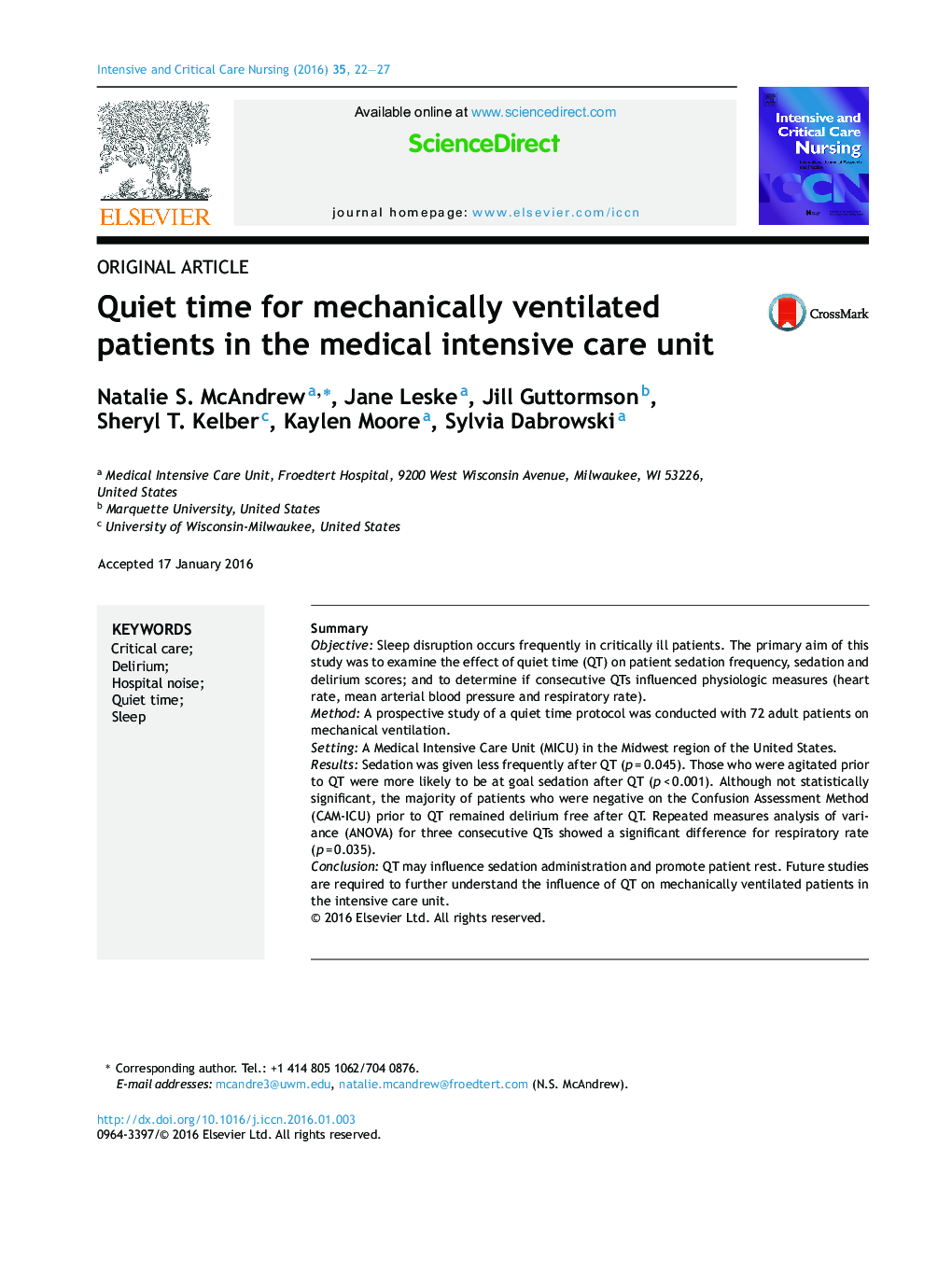| Article ID | Journal | Published Year | Pages | File Type |
|---|---|---|---|---|
| 2653185 | Intensive and Critical Care Nursing | 2016 | 6 Pages |
SummaryObjectiveSleep disruption occurs frequently in critically ill patients. The primary aim of this study was to examine the effect of quiet time (QT) on patient sedation frequency, sedation and delirium scores; and to determine if consecutive QTs influenced physiologic measures (heart rate, mean arterial blood pressure and respiratory rate).MethodA prospective study of a quiet time protocol was conducted with 72 adult patients on mechanical ventilation.SettingA Medical Intensive Care Unit (MICU) in the Midwest region of the United States.ResultsSedation was given less frequently after QT (p = 0.045). Those who were agitated prior to QT were more likely to be at goal sedation after QT (p < 0.001). Although not statistically significant, the majority of patients who were negative on the Confusion Assessment Method (CAM-ICU) prior to QT remained delirium free after QT. Repeated measures analysis of variance (ANOVA) for three consecutive QTs showed a significant difference for respiratory rate (p = 0.035).ConclusionQT may influence sedation administration and promote patient rest. Future studies are required to further understand the influence of QT on mechanically ventilated patients in the intensive care unit.
